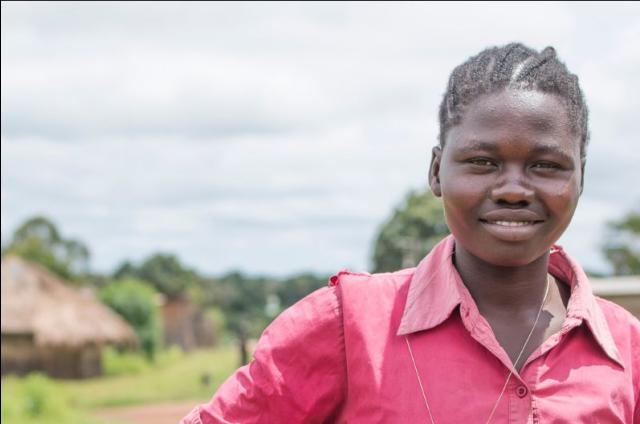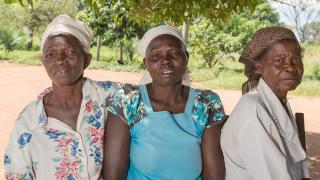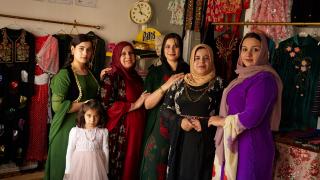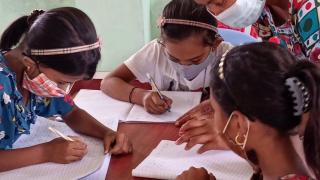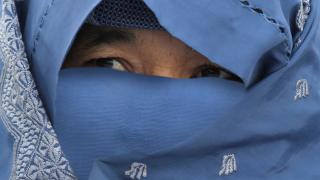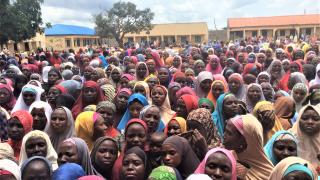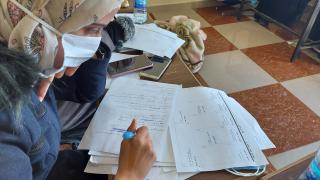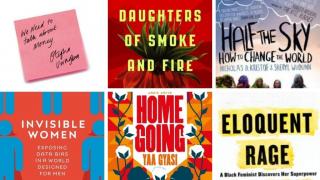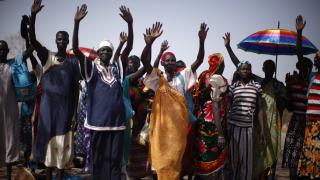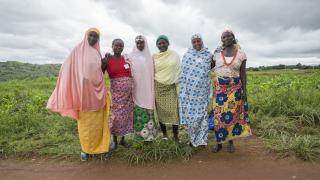From Conflict to Collaboration: A Couple's Transformation
From Conflict to Collaboration: A Couple's Transformation
The journey of two graduates of our programme, Mawa and Jackline, finding peace through our programme
Mawa and Jackline have been married for six years. They live in Wuluturu, Yei River County, South Sudan, with their two children. Their marriage was on the brink of collapse when they were enrolled in our Couples Connect Pilot Programme.
Today, Mawa shares that they now live together in harmony. Here is his story.
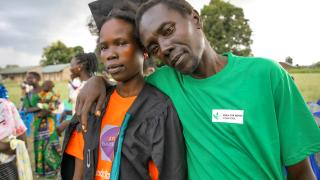
In my culture, being a man means being the head of the family. This title comes with responsibilities but also a lot of privileges.
As the head of my household, I was raised to be the sole provider and decision-maker. Everything I said or did was final. My wife wasn’t supposed to seek financial independence or earn a living; she was meant to stay home and take care of the family.
This belief shaped my expectations when I got married.
To my surprise and frustration, my wife was not the obedient woman I expected. She had a mind of her own and wanted to contribute financially. She would buy things for our home without my input, prepare meals with money I hadn’t given her, and even engage in small businesses and casual labour to make her own money. This independence didn't sit well with me. I was suspicious - where did she get the money? Why was she always away from home? Was she trying to compete with me or, worse, undermine my authority?
My suspicions turned to anger. I verbally insulted her and sometimes became violent. I threw away food she prepared with her own money and restricted her movements.
Our home became a battleground, and we became enemies living under the same roof.
One morning, my wife suggested we join the Couples Connect Programme with Women for Women International.
Initially, I was hesitant. But she mentioned that we might receive financial support if we attended together. Reluctantly, I agreed, motivated only by the prospect of money.
As we participated in the programme, something remarkable happened. We learned about teamwork, sharing responsibilities, effective communication, problem-solving and financial management.
Slowly, I began to understand and appreciate my wife’s efforts.
We started talking again, discussing business, farming and our children. I began supporting her business and we started working together. By the end of the programme, we received some capital, which we invested in her business.
Today, our lives are transformed. I can relax a little, knowing that I don’t have to shoulder every burden alone.
We are a team.
Recently, I developed an illness that affects my ability to walk or stand, making it difficult for me to work. My wife has become the primary breadwinner, contributing up to 70% of our family’s income. I now support her as best I can.
I am grateful to Women for Women International for this life-changing programme and for giving me another chance at love.
I am also grateful to my wife for being strong and persistent.
Without her, I don’t know how I would manage in my current condition.
To all women, I encourage you to support your husbands and not give up on your families. And to the men, I hope you learn from my experience: support your wives, and if you can’t support them, at least don’t stand in their way.
keep reading
Worldwide, 1 in 3 women worldwide has experienced physical and/or sexual violence in their lifetime. This number hasn’t changed in 10 years.
COVID-19 has led to the first rise in extreme poverty in a generation, pushing 47 million women and girls into extreme poverty. Women in conflict-affected countries are most likely to be at the bottom of the economic pyramid. But we can't lose hope.
OSKIA and Temperley London have come together to help celebrate some love and joy with a ‘LOVE’ Massage Candle in aid of women survivors of war. Learn more about what the collaboration means to our Ambassador Alice Temperley and OSKIA founder Georgie Cleeve.
Through the Conflict Response Fund, we are embarking on a mission to reach women and adolescent girls in Northern Rakhine State, Myanmar. Learn more about our project objectives and how you can offer your support.
Our commitment to supporting communities in Afghanistan remains, with the ultimate goal of continuing operations locally and supporting as many women as possible.
Investing in DRC’s women entrepreneurs
subtitle:
For millions of women in conflict-affected countries, starting a business is a necessity, not a choice. Our DRC team recently spoke to a number of women taking part in the training about how it has impacted their businesses and lives.
The Kidnapping Crisis in Nigeria
subtitle:
Throughout Nigeria, the number of people being kidnapped has risen dramatically in recent months. Learn about the factors leading to this and our continued commitment to women in Nigeria amidst changing circumstances.
As the Syrian civil war enters its tenth year, women and children continue to be hit the hardest. Learn how we partnered with local organisation with Women Now for Development to launch a training programme to support internally displaced women in Idlib, Syria.
Feminist Reading List: Summer 2021
subtitle:
Our feminist summer reading list is here! Take your first step towards healing the world with a summer reading list that expands your horizons and ignites your passion for change.
Reclaiming her Power: Nema's Story
subtitle:
On 9th July, we celebrate South Sudan Independence Day. Programme participants in South Sudan have impacted everyone in their lives, maximizing their power and creating a ripple effect throughout their nation. In honour of this day, we are highlighting Nema, a brave woman who completed our programme in Jansuk, South Sudan.
In May 2021, the UK Government announced that it was making substantial cuts to UK Aid. This included cuts to Women for Women International’s own programming in Afghanistan and Nigeria. Since then, we have been working with others to raise awareness of the impact of the cuts, promote transparency and hold the UK Government accountable.
A true member of our global sisterhood, Lootie is currently running around the world in support of the women we serve. In this blog, she shares the reason behind her support and journey and some useful training tips for our #SheInspiresMe Squad.

